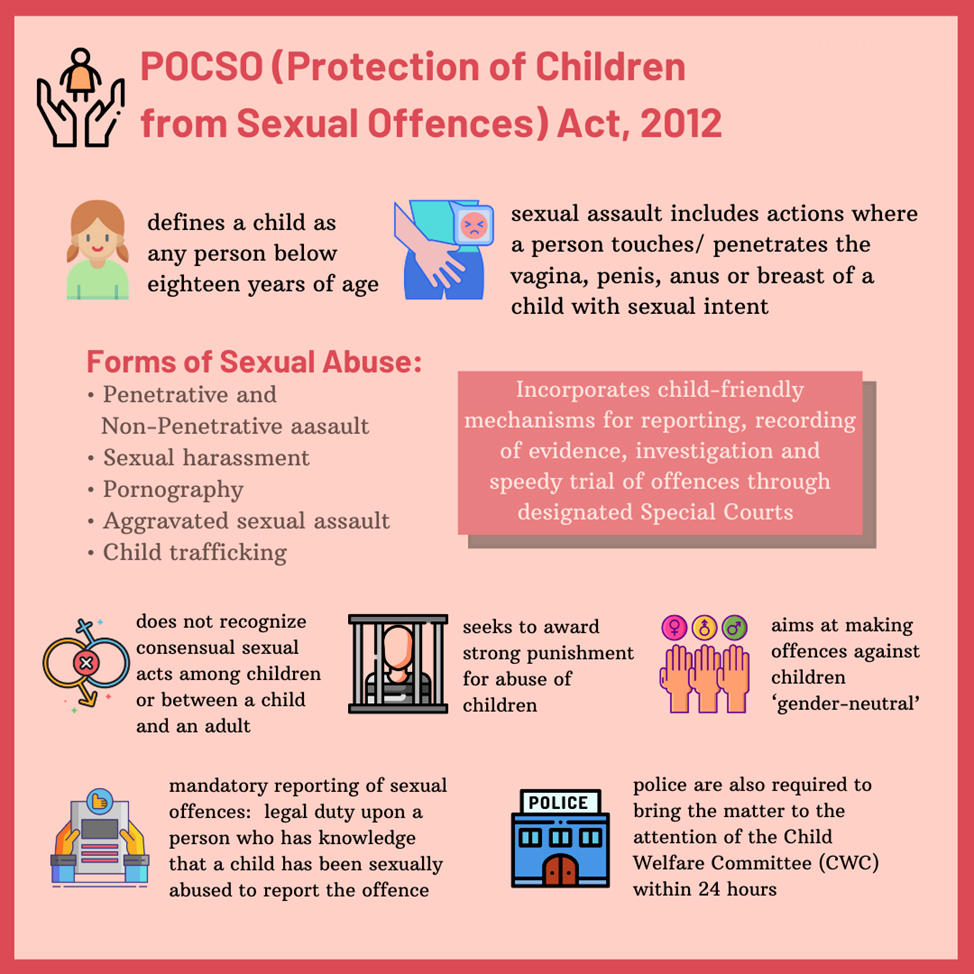Context:
The Karnataka High Court recently ruled that women can be prosecuted under the POCSO Act, 2012, reaffirming that the law is gender-neutral. This judgment came in response to a plea seeking to quash a criminal case against a 52-year-old woman, accused of compelling a 13-year-old boy into sexual acts in 2020.
What is the Key Issue?
The accused argued that Sections 4 and 6 of the POCSO Act, which deal with penetrative sexual assault and aggravated penetrative sexual assault, cannot be applied to a woman. The defence claimed that in cases of intercourse, men are active participants and women are passive. The court strongly rejected this argument, terming it archaic and outdated.
The court clarified that the POCSO Act criminalizes any person who compels a child to engage in sexual activity—whether with themselves or another person—regardless of gender. This interpretation reinforces the gender-neutral spirit of the law.
About POCSO Act:
The Protection of Children from Sexual Offences (POCSO) Act, 2012, came into force on 14th November 2012, following India’s ratification of the UN Convention on the Rights of the Child (1992).
· The Act addresses sexual exploitation and abuse of children, defining a child as any person below 18 years. It covers various offences like sexual assault, harassment, and pornography, with punishments depending on the severity.
· The Act was amended in 2019 to introduce stricter penalties, including death for aggravated sexual assault.
· The POCSO Act is gender-neutral, recognizing that both boys and girls can be victims. It ensures ease of reporting by making non-reporting a punishable offence. Offences are explicitly defined, especially the storage of child pornographic material.
· The POCSO Rules, 2020 provide for interim compensation, immediate relief, and appointment of support persons to help child victims throughout investigation and trial.
Challenges with Implementation (POCSO Act):
· Gender Gaps
o Only ~12% of police personnel are women.
o Difficult to ensure a woman officer records the child’s statement as required by law.
· Delays in forensic investigations
o Lack of adequate resources and infrastructure leads to slow processing of forensic evidence.
· Inadequate use of audio-visual recording
o Despite legal provisions, statements and crime scene evidence are often not documented audiovisually.
· Inconsistent age determination of victims
o No uniform procedure under POCSO for verifying a victim’s age.
o Often relies on school documents, which may be inaccurate or disputed.
· Delays in filing chargesheets
o Although the Act mandates completion of investigation within one month, cases often take longer.
· Lack of presumption of guilt during trial
o Courts often fail to invoke the presumption of guilt once the victim’s age is established.
Conclusion
This landmark ruling underlines that sexual offence against children can be committed by any gender. It also strengthens the legal protection offered to all minors under the POCSO Act, while sending a strong message against gender-based assumptions in sexual violence cases.







